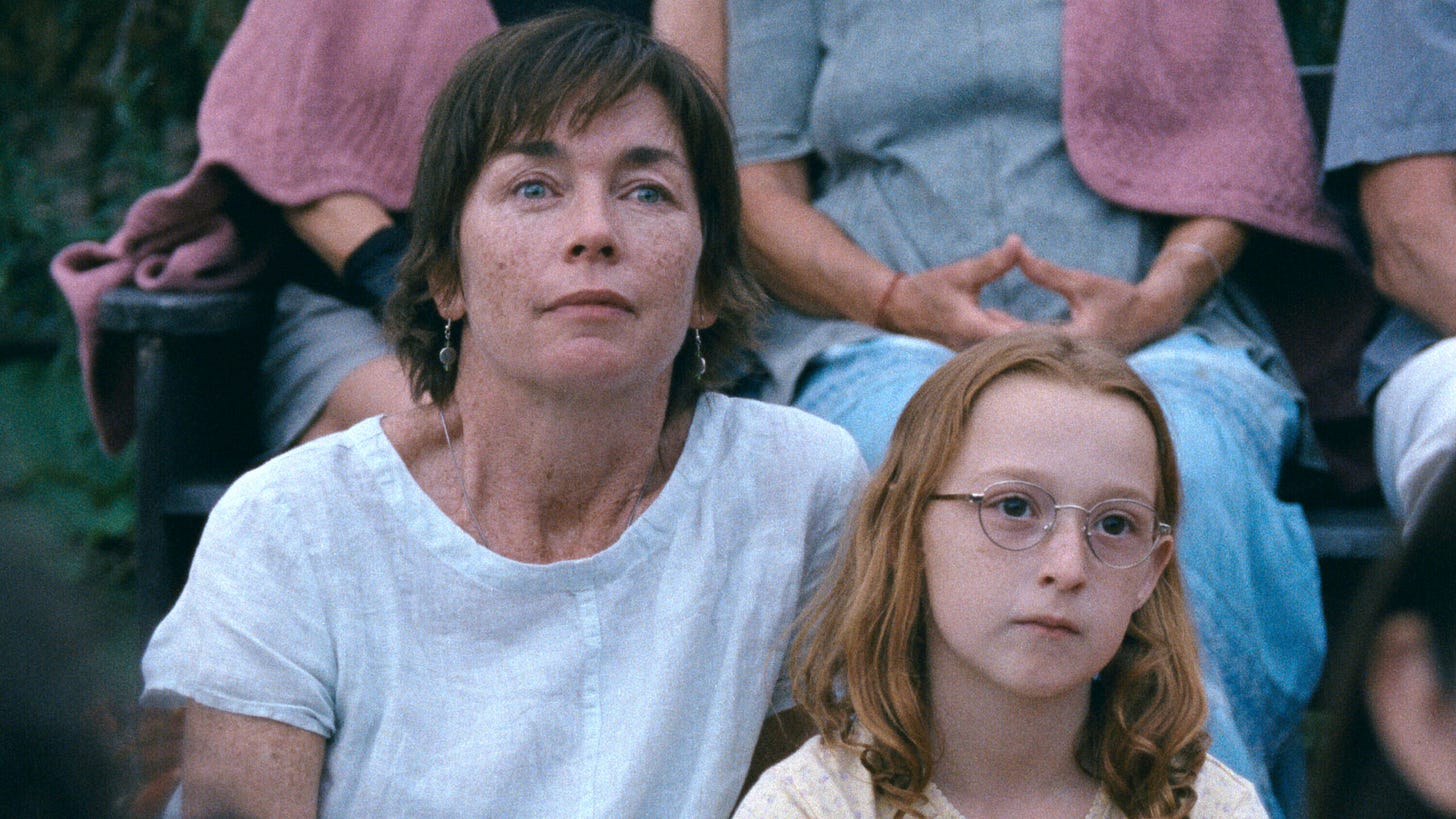Janet Planet (Annie Baker, 2023)
Janet Planet is the directorial debut of Pulitzer-winning playwright Annie Baker, whose initial foray to the cinema finds her drawing from her own childhood in rural Massachusetts with her single mother. Like the best films about adolescence, Janet Planet privileges the offhand, sensual experiences of its lonely 6th grade protagonist, Lacy, with rare specificity and patience. An introverted, uncannily intelligent looking child, Lacy is often left to fend for herself while her mother, Janet, entertains various lovers and friends who routinely pass through her life. Immersing us in Lacy’s private life, Baker’s film is almost surreally beautiful, a tactile, novel vision of the East Coast about a young girl desperate for the comfort of her mother.
The film is loosely structured around three of Janet’s relationships, each introduced with title and exit cards. Wayne, Janet’s boyfriend at the start of the film, is the most overtly antagonistic, and sets up the film’s relationship between Lacy and each of the film’s subsequent interlopers, Janet’s friend Regina and cult leader/theater troupe director Avi. Wayne questions Lacy’s fierce attachment to Janet, and it becomes clear early on that Lacy’s aversion to Janet’s flings is rooted in their threat to her vulnerable, insular world with her mother. Repeated scenes of Lacy and Janet in bed, with Lacy cradling Janet’s head and asking to hold Janet’s hand, are as raw a depiction of adolescent parental longing the cinema has ever seen.
While the mother-daughter relationship is central to Janet Planet, a significant portion of the film is dialogue-free, foregrounding Lacy’s nascent sense of a world outside of her mother. A visit with a theater troupe, featuring handmade animal mascots, is a wondrous set-piece, combining genuinely beguiling imagery with the expert blocking of a great theater director. Months after my initial viewing, my lasting memory of the film has been its warm, wood-grain textures and the shadows of a ceiling fan spinning wildly on a domed white ceiling.
In her free time, Lacy directs theater of her own, collecting a mini-record of her own experiences (e.g. a girl at camp gives her a doll, she takes grass shavings from Wayne and collects an unintended souvenir from Regina) behind a tiny red curtain. As the film progresses, Baker leans into this symbol, subtly revealing Lacy as the film’s primary puppeteer. Lacy’s abrupt loss of control is what makes the film’s kinetic, formally anomalous ending, a musical dance sequence as cathartic for Janet as it is terrifying for Lacy, so heartbreaking.
Janet Planet is now playing in Theaters




